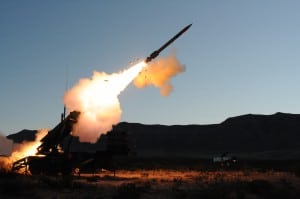
Lockheed Martin on Friday was awarded a $5.3 billion multi-year contract for PAC-3 missile interceptors, the Pentagon announced. The deal includes Army and Foreign Military Sale procurement funds, with the service noting its award includes $4.5 billion for 870 PAC-3 MSE missiles. “This multi-year contract award for the PAC-3 MSE missile follows through on the Army’s commitment to stabilize and expand our production capability for this critical weapon system, which is vital to supporting the US Army and Joint Force,…

 By
By 











